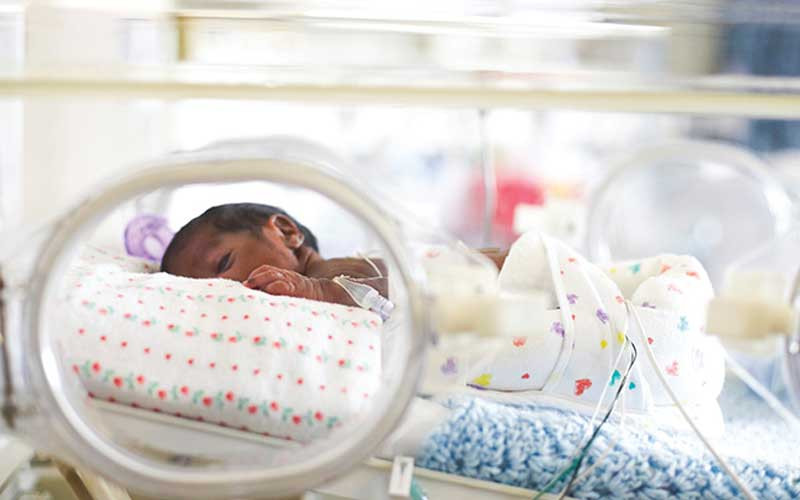
Mental health is a state of well-being in which an individual realizes his or her own potential, can cope with the normal stresses of life, can work productively and fruitfully, and is able to make a meaningful contribution to their community.
Mental health is a critical component of individual, family, community and national wellbeing and prosperity.
Fifteen million babies are born prematurely globally and ten out of every 100 babies in Zimbabwe is born prematurely.
Prematurity can lead to many health challenges in the baby, however, having a premature baby particularly one needing extensive hospital care can significantly affect the mental health of the parents.
As we commemorate this year’s World Prematurity Day on November 17, let us reflect on the mental strain that parents of a premature child may experience.
What puts parents of a premature baby at risk of mental health challenges?
- Sudden, sometimes traumatic delivery: premature births are often unexpected and may be traumatic. What one would have envisioned about their baby’s delivery is shattered. The mother may need intensive medical care, which can be frightening and the father is faced with two ill family members which can be overwhelming.
- Separation from the baby: Premature babies often need neonatal care and this often means the parents will be separated from the baby. This is heart wrenching, stressful and overwhelming for any new parent.
- Extended hospital stays: severely premature infants or premature infants who have other medical conditions may have to stay in hospital for weeks or even months. Parents will often have to rearrange their lives around hospital visits and medical interventions. This can be exhausting physically and emotionally.
- Medical interventions on the baby: having to watch your baby have even minor medical interventions can be stressful. One can feel helpless and powerless, not being able to help your baby or relieve their pain.
- Limited social support: in our increasingly isolated societies, young families may have little family support after delivery of a premature infant. Hospital systems are often not responsive to the emotional needs of parents who have had a premature infant as the focus is on the health of the infant. Affected parents will often have to manage their emotional distress with little support.
- Financial strain: the medical costs of extended hospital stays and continued frequent follow up visits and can result in mental distress
What mental health challenges can parents of a premature baby experience?
- Anxiety: the fear and uncertainty of the baby’s health condition, the stress of being in hospital or visiting the hospital daily, the financial challenges can result in anxiety disorders. This can be in the form of chronic pervasive worry as seen in Generalized Anxiety Disorder or acute, intense bouts of anxiety as seen in Panic Attacks.
- Depression: the chronic stress of having an infant in hospital, the physical and emotional exhaustion of such circumstances can result in depression. Women are at risk of post natal depression but fathers under the stress of managing a premature baby may also experience depression, experiencing sadness, exhaustion, demotivation, helplessness and hopelessness
- Post-traumatic stress disorder: the trauma of an unexpected early delivery, separation from one’s infant, witnessing of medical interventions, seeing other unwell children admitted together with your own can all result in psychological trauma and in some cases post-traumatic stress disorder
How can the family, community and the healthcare system support parents of premature babies
- Mental health must be a priority at our workplaces
- ‘Art therapy critical in combating mental disorders’
- Be ethical, Potraz tells content creators
- How HR can effectively handle employee depression
Keep Reading
- Strengthen social support networks in our families especially in times of distress. Our families should be the first line of defence when we are under stress and vulnerable to mental health challenges
- Provide practical support to affected families as families and communities, to help ease the burden of extended hospital stays
- Allow emotional authenticity and emotional vulnerability, if an affected parent feels overwhelmed, helpless or hopeless, allow them to express their emotions without prematurely giving advice on how they should handle the situation
- Create health systems that are responsive to emotional and mental health needs of affected families, health workers need training on how to provide mental health first aid to distressed families and basic psychosocial support
- Provide integrated mental health screening and care for affected families for early identification of mental health challenges and appropriate care
If you think that you or someone that you know may be struggling with a mental health challenge, please contact your nearest health care provider and get help.
- Dr Chido Rwafa-Madzvamutse is a consultant psychiatrist. Feedback on WhatsApp: +263714987729; LinkedIn: https://www.linkedin.com/in/chido-rwafa-madzvamutse-53529259/ ; Facebook: https://www.facebook.com/chido.rwafa











